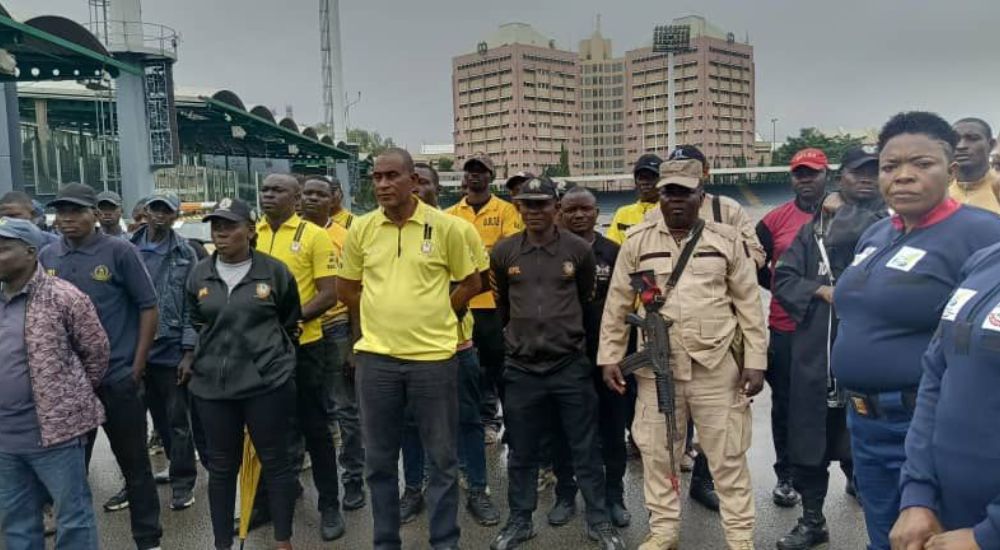From Juliana Taiwo-Obalonye, Abuja
In a sweeping operation targeting illegal settlements in the heart of Abuja, the city’s Development Control Department, Security Services, and Vehicle Inspection Office (VIO) have cleared an area described as a major threat to the capital’s security and aesthetic standards.
Officials say the exercise, which involved removing illicit structures, impounding vehicles, and seizing weapons, will be followed by a mop-up operation to ensure criminal elements do not return.
“We’ve been able to identify a location that somehow poses a lot of challenges to the city’s security and then a city’s aesthetic quality and we’ve been able to clear the menace and even to chase some of the people of the questionable character,” said Director of Development Control, Mukhtar Galadima; “But we’re not ending today, we are coming back tomorrow to do what we call a mop-up exercise.”
Galadima addressed concerns about the eviction of long-term occupants, clarifying that their residence was illegal and the site had always been intended for another use,“They’ve been residing illegally so there is nothing we can do about it, but to chase them out of the place. Moreover, this place has been designated for another use. It’s not supposed to accommodate them but they were just occupying illegally,” he stated.
He disclosed the area is slated for a new transportation corridor,“In the plan of Abuja, where we are standing now is a proposed road corridor that has been designated as the Inner Northern Expressway, just like what we have as Goodluck-Ebele Jonathan Expressway.”
Moving forward, the administration plans to ensure cleared spaces are quickly put to their designated uses, insisting “every time we clear we are going to commit it to a particular thing; we are going to take possession of that particular space.”
Galadima stressed that the city’s residents must cooperate, even as some claim their rights are being infringed upon:“We seek their cooperation because in the process of sanitizing the city, some people will claim that we have infringed on their rights, whereas we have to make the city secured and cleaner. So that is the essence of the exercise.”
Representing Abuja’s Security Services Department, Peter Olumuji, held aloft weapons seized from the site, explaining that they were used to attack residents and passersby—sometimes with deadly results. “If you look at some of these machetes I’m holding here, these are the weapons most of these criminal elements who are violating the peace in this particular axis normally used to attack unsuspecting passers-by and murdering in public,” Olumuji said.
He outlined how suspects exploit nearby bridges and routes to commit their crimes, adding: “When they attack them, they not only collect their valuables, they also go ahead to machete them with this. Evidences abound in the various police posts around here.” Although many suspects fled as authorities arrived, Olumuji assured that the clearance would provide relief for residents and commuters: “The clearance operation we have done here will bring great respite to people living around here and people plying those key routes that we mentioned.”
Head of Operations at the VIO, Deborah Osho, said the agency had towed about 20 vehicles from the area, pointing out their use in various criminal activities. “We have about 20 vehicles impounded. Not only impounded, they were towed from this place. Those vehicles are some of the things used for all these miscarriages. Some of them are not even movable. They use them to have an edge, use them to commit their atrocities,” Osho explained.
She further confirmed suspicions that some vehicles were linked to “one chance” robberies—a notorious urban crime involving criminals posing as public transport drivers. “Yes, some of them are being used for one chance. So most of them are being towed, not even driven,” she added.
Answering questions about the fate of the vehicles, Osho clarified the agency would not crush them: “We are not going to crush them, but they are going to pay heavily for their vehicles to be given back to them, and before they will leave, we are going to commit them and ensure that they are not going to come back here again.”


